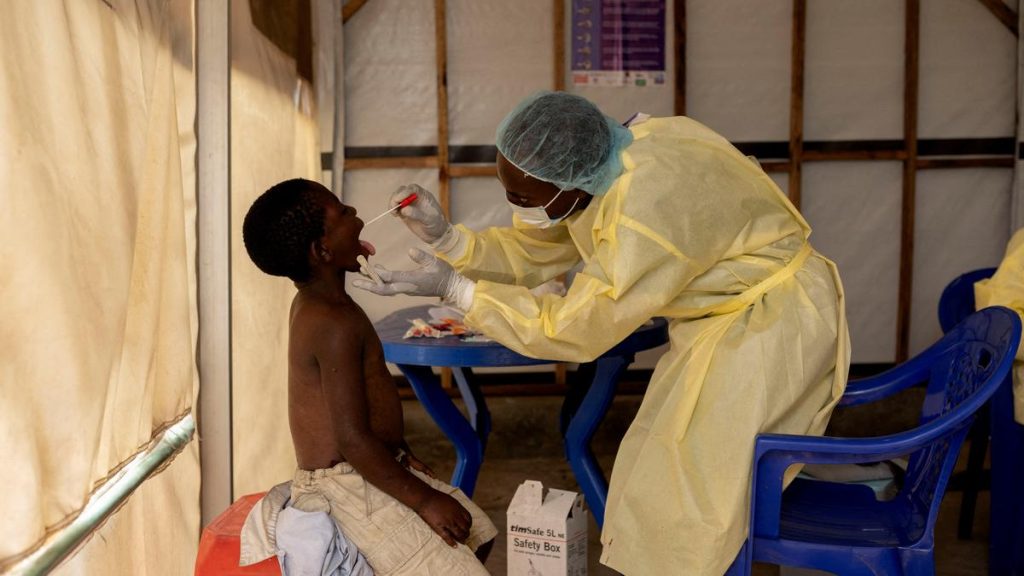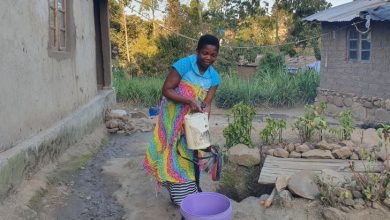Mpox brings back masks
Increasing sights of face masks in markets and meetings across Malawi signal the ripple effect of the mpox disease ravaging the Democratic Republic of Congo.
The nation peeled off the face mask in 2022 following steep declines in Covid-19 deaths and hospitalisations.

The Covid-19 transmission beyond China illustrated how disease outbreaks spread at the speed people and goods move.
Last year, the World Health Organisation (WHO) declared that Covid is no longer a public health emergency of international concern.
However, the mask is crawling back into use as mpox jumps southern Africa’s porous borders from DRC, less than 500km west of Malawi’s capital city, Lilongwe.
Its spread constitutes yet another reminder that a disease outbreak in any part of the shared planet should be every country’s concern.
As humanity is easing back to normal, mpox has killed over 1 300 of about 27 000 suspects, according to the World Health Organisation (WHO).
WHO director-general Dr Tedros Adhanom Ghebreyesus has announced that the upsurge of mpox across the continent constitutes a public health emergency of international concern.
“The emergence of a new clade of mpox, its rapid spread in eastern DRC and the reporting of cases in several neighbouring countries are very worrying,” he said. “On top of outbreaks of other mpox clades in DRC and other countries in Africa, it’s clear that a coordinated international response is needed to stop these outbreaks and save lives.”
However, some Malawians appear unaware of the disease, including its severity, signs, symptoms and preventive measures.
Chinsinsi Dimba, from the populousNdirande Township in Blantyre, says she has “no idea what this disease is all about”.
“Mpox is new,” she said. “I have no information about the disease.”
Alex Shaba, from Chiradzulu, says he has too little detail about it from the radio.
“I partly know mpox as a sexually transmitted infection [STI] that mostly affects men having sex with men”, he says.
Scientists are still investigating whether mpox is an STI.
However, LGBTIQ activist Erick Sambisa says although the underground sexual minorities, including gay people, are at a higher risk of contracting mpox, the disease spreads beyond sexual orientation and gender identities.
Sambisa states: “As efforts are being taken to raise community awareness on the spread and prevention of mpox, everyone should be aware that this is a general disease, not only for people in same-sex relationships.
“When the mpox vaccine becomes available, our community should not be left behind as we are often in contact with each other and we travel frequently.”
He also asked for more health education tips and accurate information tailored for the sexual minorities pushed underground by fear of violence fuelled by colonial laws that ban same-sex acts.
The mpox virus might have jumped from animals to human beings, WHO reports. It is transmitted through contact with body fluids from infected persons, including lesions, respiratory droplets and contaminated beddings.
The risk factors include eating inadequately cooked animal products, overcrowded settings and travel to affected areas.
Mpox patients present with high fever, skin rashes, headaches and swollen lymph nodes.
Since the disease spreads through contact, the fightback includes limiting travel and overcrowding, as was the case with Covid prevention.
The human instinct to stay safe has made the mask a must-have.
Health authorities warn against crowded spaces and frequently touched spots where such diseases spread fast. They recommend masking up and frequently washing hands with soap.
However, most people continue to do business as usual in markets, churches, mosques, funerals, public meetings, conferences and other open spaces due to lack of awareness of the disease’s severity.
On August 13, 2024, Africa CDC, the African Union’s Centre for Disease Control and Prevention, declared mpox a public health emergency of continental security.
The virus has been confirmed in several countries, including Burundi, Kenya, Rwanda and Uganda.
Malawi’s Ministry of Health says the country has no confirmed mpox case as all three suspects in the Southern Region tested negative.
However, Minister of Health Khumbize Chaponda says Malawi is at great risk as mpox is now a global threat.
“Prevention is better than cure,” she warns. “Be alert because the disease is just around the corner. Anytime from now, it can strike Malawi.”
Chiponda urges those with mpox signs and symptoms to report early to the nearest hospital.
She says her ministry is on high alert and vigilantly conducting surveillance to prevent, detect and respond to any possible outbreak.
According to the minister, the Public Health Institute of Malawi and its partners have ramped up preparedness, surveillance, risk communication, community engagement and logistics mobilisation.
The country has started mpox screening in all ports of entry.
“Ministry is working with WHO to supply vaccine to the most vulnerable individuals such as pregnant women, same-sex individuals and people living with HIV,” said the minister.
Mpox was discovered in 1970 in the DRC.
It has claimed 517 lives from 17 541 cases in southern Africa.
The DRC account for 90 percent of the cases and deaths.


